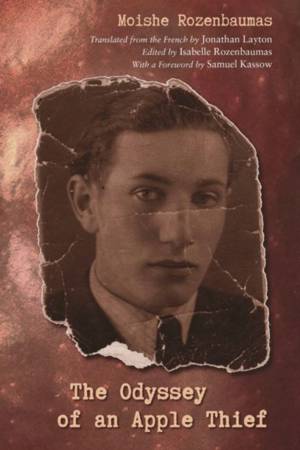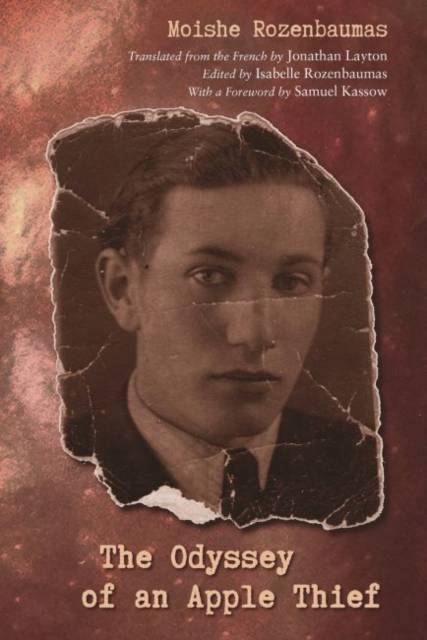
- Retrait gratuit dans votre magasin Club
- 7.000.000 titres dans notre catalogue
- Payer en toute sécurité
- Toujours un magasin près de chez vous
- Retrait gratuit dans votre magasin Club
- 7.000.0000 titres dans notre catalogue
- Payer en toute sécurité
- Toujours un magasin près de chez vous
Description
In The Odyssey of an Apple Thief, Moishe Rozenbaumas (1922-2016) recounts his fascinating life, from his Lithuanian boyhood, to the fraught experiences that take him across Europe and Central Asia and back again, to his daring escape from Soviet Russia to build a new life in Paris. Along the way, we get a rarely seen portrait of the lives of working-class Jewish youth in Telz/Telsiai, a religious town renowned for its yeshiva. We hear of the games children played, the theft of apples from a Catholic orchard, and Rozenbaumas's early apprenticeship as a tailor once his father leaves the country.
The war breaks out and the teenaged Rozenbaumas flees Lithuania alone, unable to convince his mother and sibling to go with him. We learn of his life as a starved refugee in an Uzbek kolkhoz, his escape into the Red Army, and his unlikely work in the reconnaissance unit of the Soviet Army. After the war, Rozenbaumas is drafted into the Marxist-Leninist university and as a cadre of the Communist Party, ultimately escaping in 1956 with his family to Paris, where he and his wife give an openly Jewish education to their children.
In the vast literature of memory written by Jewish witnesses before, during, and after WWII, Rozenbaumas's account stands out for the singularity of his experience and for his deft narration of events of mythological dimension from a personal perspective. The Odyssey of an Apple Thief offers not only invaluable testimony of this historical moment but also an illuminating and original portrait of Lithuanian Jews in the twentieth century.
Spécifications
Parties prenantes
- Auteur(s) :
- Editeur:
Contenu
- Nombre de pages :
- 248
- Langue:
- Anglais
- Collection :
Caractéristiques
- EAN:
- 9780815636267
- Date de parution :
- 20-11-19
- Format:
- Livre relié
- Format numérique:
- Genaaid
- Dimensions :
- 152 mm x 229 mm
- Poids :
- 616 g







